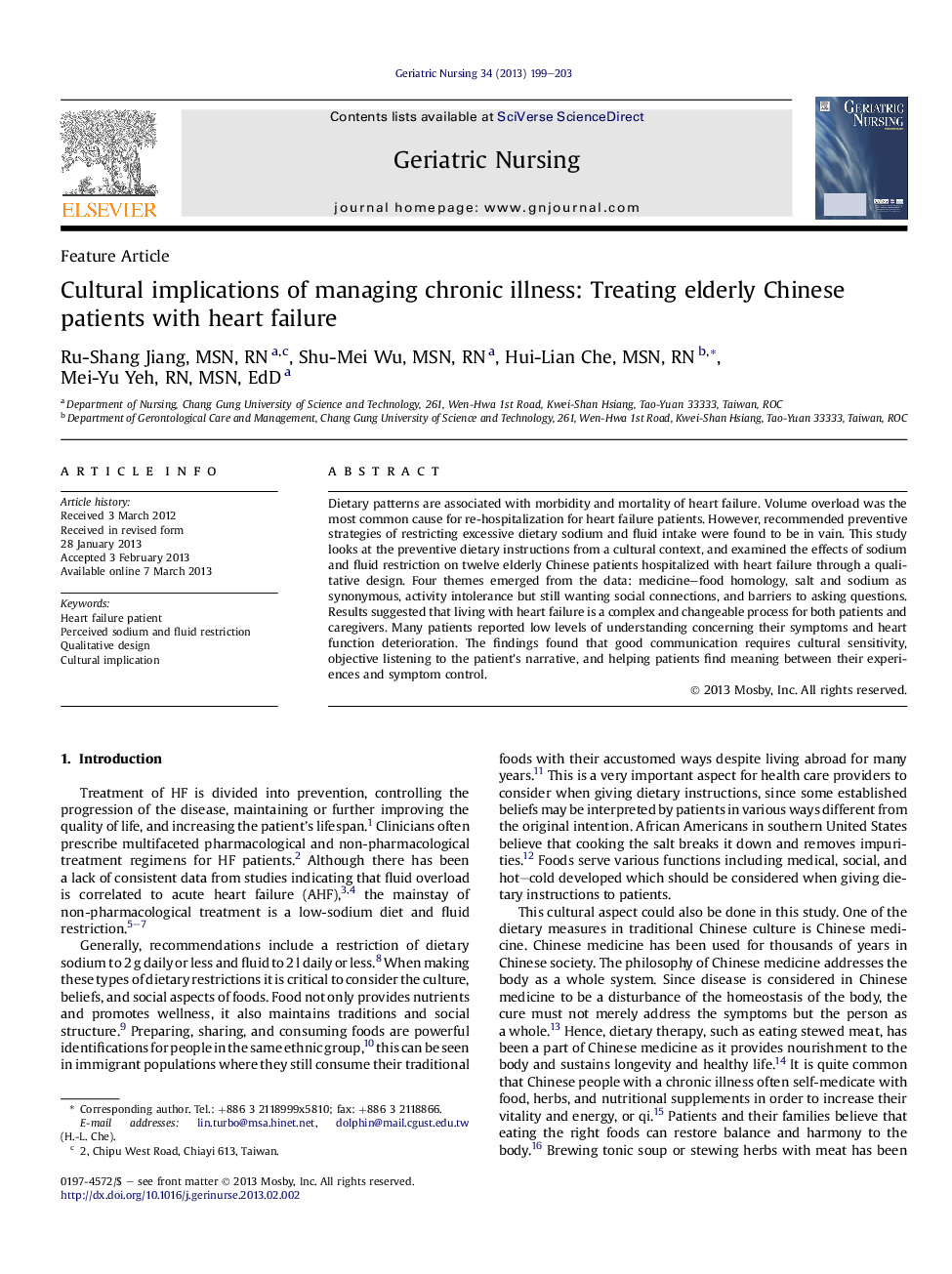| Article ID | Journal | Published Year | Pages | File Type |
|---|---|---|---|---|
| 2648976 | Geriatric Nursing | 2013 | 5 Pages |
Dietary patterns are associated with morbidity and mortality of heart failure. Volume overload was the most common cause for re-hospitalization for heart failure patients. However, recommended preventive strategies of restricting excessive dietary sodium and fluid intake were found to be in vain. This study looks at the preventive dietary instructions from a cultural context, and examined the effects of sodium and fluid restriction on twelve elderly Chinese patients hospitalized with heart failure through a qualitative design. Four themes emerged from the data: medicine–food homology, salt and sodium as synonymous, activity intolerance but still wanting social connections, and barriers to asking questions. Results suggested that living with heart failure is a complex and changeable process for both patients and caregivers. Many patients reported low levels of understanding concerning their symptoms and heart function deterioration. The findings found that good communication requires cultural sensitivity, objective listening to the patient's narrative, and helping patients find meaning between their experiences and symptom control.
